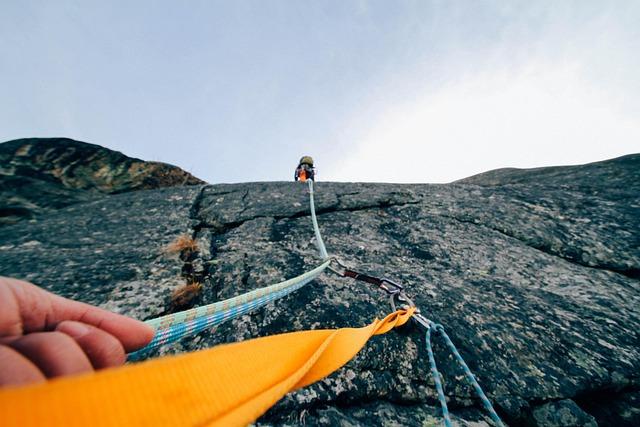As the countdown to the LA28 Olympic Games begins, sport climbing is set to make a renewed and reimagined appearance on the world’s biggest athletic stage. The International Olympic Committee’s updated competition format promises to reshape the dynamics of the sport, offering fresh opportunities and challenges for both established stars and emerging talents. This article explores what the new Olympic format means for sport climbing’s evolution, its athletes, and the broader climbing community ahead of its highly anticipated showcase in Los Angeles.
Sport Climbing Evolution at LA28 Emphasizes Speed and Strategy
At LA28, the sport climbing format has undergone a fundamental transformation that puts a premium on both speed and strategic acumen. Unlike previous Olympic editions where climbers competed in a combined event, the new format separates disciplines, allowing athletes to specialize and showcase their strengths in speed climbing, lead climbing, and bouldering individually. This evolution is expected to shift training regimens and competitive approaches, as speed climbing demands lightning-fast reflexes and precise footwork, while lead climbing and bouldering emphasize problem-solving and endurance. The recalibrated scoring system rewards climbers who can balance explosive velocity with calculated risk-taking, redefining what it means to be an Olympic climbing champion.
This recalibration affects not only athlete preparation but also fan engagement. Spectators can look forward to a clearer, more dynamic competition experience where the drama of a rapid-fire face-off meets the intellectual challenge of complex routes. Key elements highlighted in the new format include:
- Separate medals for each climbing discipline, elevating specialists.
- Distinct strategies for speed vs. technical routes.
- Enhanced broadcast appeal through varied event pacing.
| Discipline | Key Focus | Typical Duration |
|---|---|---|
| Speed Climbing | Explosive power, flawless technique | 5-10 seconds |
| Lead Climbing | Endurance, route reading | 4-6 minutes |
| Bouldering | Strength, problem-solving | 3-5 minutes per problem |
Impact of the Revised Olympic Format on Athlete Training and Performance
The shift in the Olympic format for sport climbing at LA28 demands a recalibration of athlete preparation strategies. Unlike previous editions where climbers competed across a combined event, the new structure separates disciplines-bouldering and lead climbing now stand as individual contests. This bifurcation requires athletes to specialize their training regimes more intensively, focusing on discipline-specific endurance, technique, and mental tactics. As a result, coaches and sports scientists are crafting tailored programs that balance physical conditioning with skill refinement, ensuring climbers peak precisely when it matters most. The increased competitiveness in each discipline also elevates the importance of recovery protocols and injury prevention tactics, as athletes push harder within narrower event windows.
- Discipline-Focused Training: Greater emphasis on technique drills specific to bouldering or lead climbing.
- Enhanced Mental Preparation: Strategic mindset development given the distinct natures of each discipline.
- Optimized Recovery: Shorter competition spans demand faster physical and mental recuperation.
The measurable impact on performance is already becoming evident. Early analytics from international qualifiers highlight shifts in key performance indicators such as success rate on complex boulder problems and endurance times in lead routes. Consider the comparison below showing projected athlete focus changes from the previous combined format to the new dual-discipline system:
| Training Element | Previous Combined Format | LA28 Revised Format |
|---|---|---|
| Endurance Training | Moderate balance across bouldering & lead | Highly specialized by discipline |
| Technical Skill Drills | Broad technical range | Precision-focused per event |
| Recovery Emphasis | Generalized between events | Accelerated with sport science input |
| Mental Conditioning | Unified psychological approach | Tailored to event-specific pressures |
As athletes adapt, the evolution signals a new era where performance excellence hinges not only on raw ability but also on smart, targeted training innovations. These adjustments are poised to raise the bar, delivering more spectacular and disciplined showdowns on LA28’s climbing walls.
Key Recommendations for Climbers Navigating the New Competitive Landscape
As the 2028 Olympic Games reshape sport climbing with separate bouldering and lead events alongside speed climbing, athletes must recalibrate their training regimens to excel across distinct disciplines. Specialization will become a strategic asset, with climbers refining skills tailored to each format’s unique demands. Experts advise prioritizing recovery protocols and mental agility to swiftly transition between explosive power for speed routes and endurance for lead climbs.
Coaches and teams should consider integrating technology-enhanced monitoring tools to track performance metrics, ensuring data-driven adjustments throughout the Olympic cycle. The table below outlines key focus areas for climbers preparing under the new format:
| Discipline | Primary Skill | Training Focus | Competitive Edge |
|---|---|---|---|
| Speed Climbing | Explosiveness & Precision | Start techniques & muscle power | Fast reaction time |
| Bouldering | Problem-solving & Power | Grip strength & dynamic moves | Adaptability |
| Lead Climbing | Endurance & Strategy | Route reading & pacing | Stamina management |
The Way Forward
As LA28 approaches, the revised format for sport climbing signals both opportunity and evolution for athletes and fans alike. By separating bouldering and lead events and introducing a combined speed climbing medal, the new structure aims to showcase the diverse talents within the sport while enhancing its spectator appeal. For the stars of sport climbing, this change presents fresh challenges and strategies, underscoring the dynamic nature of climbing’s place on the Olympic stage. As the sport continues to grow globally, LA28 stands as a pivotal moment that could redefine its future trajectory in the Olympic movement.

